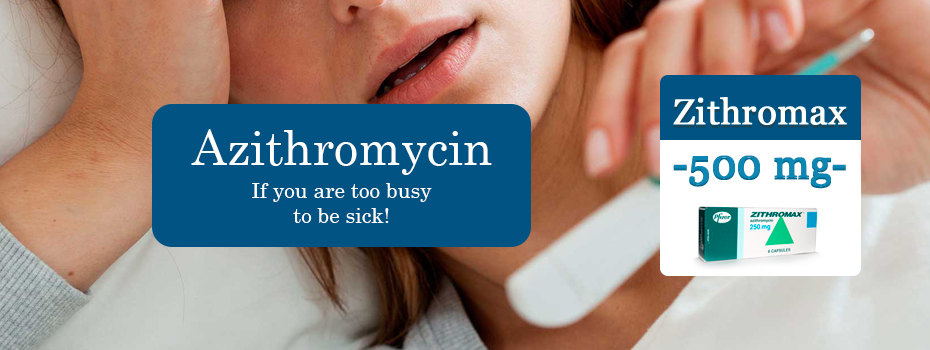Generic Minocin
 |
Active component:
MinocyclinePackages: 50/100 mg |
Minocin (Minocycline) 100 mg buy online at our online pharmacy: | ||
| Package | Price | Currency: |
|---|---|---|
100 mg × 120 pills | $ 459.90 $ 343.90 $ 2.87 per pill | Buy Minocin 100 mg × 120 » |
100 mg × 90 pills | $ 345.90 $ 292.90 $ 3.25 per pill | Buy Minocin 100 mg × 90 » |
100 mg × 60 pills | $ 230.90 $ 195.90 $ 3.27 per pill | Buy Minocin 100 mg × 60 » |
100 mg × 30 pills | $ 121.90 $ 114.90 $ 3.83 per pill | Buy Minocin 100 mg × 30 » |
Minocin (Minocycline) 50 mg buy online at our online pharmacy: | ||
| Package | Price | Currency: |
|---|---|---|
50 mg × 180 pills | $ 564.90 $ 408.90 $ 2.27 per pill | Buy Minocin 50 mg × 180 » |
50 mg × 120 pills | $ 375.90 $ 306.90 $ 2.56 per pill | Buy Minocin 50 mg × 120 » |
50 mg × 90 pills | $ 282.90 $ 242.90 $ 2.70 per pill | Buy Minocin 50 mg × 90 » |
50 mg × 60 pills | $ 188.90 $ 174.90 $ 2.92 per pill | Buy Minocin 50 mg × 60 » |
50 mg × 30 pills | $ 99.90 $ 93.90 $ 3.13 per pill | Buy Minocin 50 mg × 30 » |
We accept major debit cards, credit cards and pre-paid credit cards: Visa, MasterCard and other
Manufacturer: Ipca Laboratories
Minocin, also known by its generic name minocycline, is a potent antibiotic medication used to treat a variety of bacterial infections. It belongs to the tetracycline class of antibiotics and is highly effective against a wide range of microorganisms, including both Gram-positive and Gram-negative bacteria. With its broad spectrum of activity, Minocin offers a valuable tool to healthcare professionals in the fight against bacterial infections.
One of the distinguishing features of Minocin is its ability to penetrate deep into tissues, including the skin, respiratory tract, and genitourinary system. This allows for its use in treating various types of infections, such as respiratory tract infections, urinary tract infections, acne, and sexually transmitted diseases.
Minocin works by inhibiting the protein synthesis of bacteria, thereby preventing their growth and replication. This mechanism of action makes it a highly effective weapon against bacterial infections. Furthermore, Minocin possesses anti-inflammatory properties, which can provide relief from the symptoms associated with certain infections, such as swelling, redness, and pain.
In addition to its antibacterial properties, Minocin has been found to have several other therapeutic effects. It is commonly used as a treatment option for acne vulgaris, a common skin condition characterized by the presence of pimples, blackheads, and whiteheads. The anti-inflammatory properties of Minocin help reduce the inflammatory response associated with acne, resulting in clearer and smoother skin.
Moreover, Minocin has shown promise in the treatment of rheumatoid arthritis, an inflammatory autoimmune disease affecting the joints. Studies have demonstrated that Minocin can help alleviate the symptoms of rheumatoid arthritis, such as joint pain, swelling, and stiffness, by suppressing the immune response and reducing the inflammation.
Minocin is available in various formulations, including tablets and capsules. The dosage and duration of treatment may vary depending on the specific indication and the severity of the infection. It is important to follow the prescribed dosage and complete the full course of treatment to ensure maximum effectiveness.
As with any medication, Minocin may cause certain side effects. Common side effects include gastrointestinal upset, such as nausea, vomiting, and diarrhea. These side effects are usually mild and transient, but it is important to consult a healthcare professional if they persist or worsen. Rare but potentially serious side effects include severe allergic reactions, liver toxicity, and potentially irreversible discoloration of the teeth and enamel in pediatric patients. It is crucial to promptly report any unusual or severe side effects to a healthcare provider.
Before initiating treatment with Minocin, it is important to inform the healthcare provider about any pre-existing medical conditions and ongoing medications, as certain conditions and medications may interact with Minocin, potentially leading to adverse effects.
Minocin (minocycline) is a powerful and versatile antibiotic that provides an effective treatment option for a wide range of bacterial infections. Its ability to penetrate deep tissues, coupled with its anti-inflammatory properties, makes it a valuable tool in the fight against infections, acne, and even rheumatoid arthritis. However, it should be used with caution and under the guidance of a healthcare professional to ensure maximum safety and efficacy.
One of the distinguishing features of Minocin is its ability to penetrate deep into tissues, including the skin, respiratory tract, and genitourinary system. This allows for its use in treating various types of infections, such as respiratory tract infections, urinary tract infections, acne, and sexually transmitted diseases.
Minocin works by inhibiting the protein synthesis of bacteria, thereby preventing their growth and replication. This mechanism of action makes it a highly effective weapon against bacterial infections. Furthermore, Minocin possesses anti-inflammatory properties, which can provide relief from the symptoms associated with certain infections, such as swelling, redness, and pain.
In addition to its antibacterial properties, Minocin has been found to have several other therapeutic effects. It is commonly used as a treatment option for acne vulgaris, a common skin condition characterized by the presence of pimples, blackheads, and whiteheads. The anti-inflammatory properties of Minocin help reduce the inflammatory response associated with acne, resulting in clearer and smoother skin.
Moreover, Minocin has shown promise in the treatment of rheumatoid arthritis, an inflammatory autoimmune disease affecting the joints. Studies have demonstrated that Minocin can help alleviate the symptoms of rheumatoid arthritis, such as joint pain, swelling, and stiffness, by suppressing the immune response and reducing the inflammation.
Minocin is available in various formulations, including tablets and capsules. The dosage and duration of treatment may vary depending on the specific indication and the severity of the infection. It is important to follow the prescribed dosage and complete the full course of treatment to ensure maximum effectiveness.
As with any medication, Minocin may cause certain side effects. Common side effects include gastrointestinal upset, such as nausea, vomiting, and diarrhea. These side effects are usually mild and transient, but it is important to consult a healthcare professional if they persist or worsen. Rare but potentially serious side effects include severe allergic reactions, liver toxicity, and potentially irreversible discoloration of the teeth and enamel in pediatric patients. It is crucial to promptly report any unusual or severe side effects to a healthcare provider.
Before initiating treatment with Minocin, it is important to inform the healthcare provider about any pre-existing medical conditions and ongoing medications, as certain conditions and medications may interact with Minocin, potentially leading to adverse effects.
Minocin (minocycline) is a powerful and versatile antibiotic that provides an effective treatment option for a wide range of bacterial infections. Its ability to penetrate deep tissues, coupled with its anti-inflammatory properties, makes it a valuable tool in the fight against infections, acne, and even rheumatoid arthritis. However, it should be used with caution and under the guidance of a healthcare professional to ensure maximum safety and efficacy.
Technical Information
Brand names: Arestin, Dynacin, Klinomycin, Minociclina, Minocyclin, Minocyclinum, Minocyn, Minomycin, Vectrin
Minocin: CNN (Ipca Laboratories)
Imprints: Minocin (minocycline) Lederle M46 Lederle 100 mg, Minocin (minocycline) LEDERLE 50mg LEDERLE M45, Minocin (minocycline) Triax M050 Triax 50 mg, Minocin (minocycline) Triax M0100 Triax 100 mg, Minocin (minocycline) Onset M0100 Onset 100 mg










